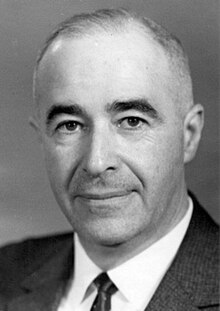Ilya Lifshitz
| Ilya Mikhailovich Lifshitz | |
|---|---|
 |
|
| Born |
January 13, 1917 Kharkiv, Kharkov Governorate, Russian Empire |
| Died | October 23, 1982 (aged 65) Moscow, Russian SFSR, USSR |
| Fields | Physics |
| Institutions | Kharkov Institute of Physics and Technology Institute for Physical Problems |
| Alma mater | University of Kharkiv, Kharkiv Polytechnic Institute |
| Doctoral advisor | Lev Landau |
| Doctoral students | Mark Azbel, Alexander Grosberg, Moisei Kaganov, Emanuil Kaner, Alexei Khokhlov, Arnold Kosevich, Valentin Peschansky, Vitaly Slezov, Vladimir Ulyanov |
| Known for | Lifshitz tails, Lifshitz exponent, Self-averaging, spectral shift function, supersolidity |
| Notable awards | Lenin prize |
Ilya Mikhailovich Lifshitz (Russian: Илья́ Миха́йлович Ли́фшиц; January 13, 1917 – October 23, 1982) was a leading Soviet theoretical physicist, brother of Evgeny Lifshitz. He is known for his works in solid state physics, electron theory of metals, disordered systems, and the theory of polymers.
Together with Arnold M. Kosevich established (1954) connection between the oscillation of magnetic characteristics of metals and the form of an electronic surface of Fermi (Lifshitz–Kosevich formula).
Lifshitz was one of the founders of the theory of disordered systems. He introduced some of the basic notions, such as self-averaging, and discovered what is now called Lifshitz tails and Lifshitz singularity.
In perturbation theory, Lifshitz introduced the notion of spectral shift function, which was later developed by Mark Krein.
...
Wikipedia
